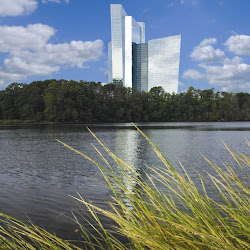The State of Connecticut may repeal a law enacted last summer which would place keno terminals around the state. Governor Dannel P. Malloy originally supported keno gambling to make up a shortfall in the state’s budget, but it appears the governor may have reverse his stance on keno terminals.
The original plan was to bring licensed keno terminals in select locations throughout the state, and Governor Malloy seemed to approve. On Wednesday of last week, Dannel Malloy said the plan was not his own and he would sign a bill to repeal any previous legislation, if such a bill reached his desk.
After hearing the announcement, State Representative Tony Hwang lauded the governor’s new stance. So did former US Representative Robert Steele, who has been a vocal critic of the expansion of ambling. Steele and Hwang released a joint statement, saying, “The Governor’s reversal provides not only an important opportunity to halt keno, but to reverse the growing drive to expand casino-type gambling in general in Connecticut.”
The Republican politicians noted that the keno bill is only one case where gaming could be expanded in Connecticut. A committee has been formed to study whether machine gaming would be appropriate for venues in Bridgeport, New Haven, and Windsor Locks.
June 2013 Approval
The Connecticut State Legislature approved a bill in June 2013 which would place keno terminals in convenience stores, gas stations, restaurants, bars, and supermarkets. Because two Connecticut-area Native American Tribes, the Mohegan and Mashantucket Pequot Tribes, have exclusive rights to offer keno in the state, the bill provided for a payment of 12.5% of the revenues be paid to those two gaming entities. State Senator Andrea Stillman of Waterford recently introduced a bill to the General Assembly which would repeal the previous law, prompting the comments from Governor Malloy.
Nearby state also have keno terminals, so Connecticut lawmakers saw a chance to collect money from out-of-state travelers, while also keeping Connecticut citizens’ money in the state. Since the legislation was approved, anti-gaming advocates have been vocal critics of the move. Some see keno betting as bad option for gamblers, while others see any expansion of legalized gambling to be a bad sign.
How Keno Is Played
Keno is often compared to Bingo, but the game has drawings quite similar to lottery-style games. A player pays to have up to 20 numbers, or “spots”. In most drawings, 20 numbers are drawn from a range of 1 to 80. The more numbers a player has drawn (“catches”), the bigger the payout for the player. The chance of hitting on all 20 numbers is astronomically low, somewhere in the range of 1 in a trillion or more. But big payouts on 10 catches or more lure players to give the game a try.
Keno is often said to have a bad house edge, because it can range as high as 20% to 30%. This isn’t as high of a house edge as the state and multi-state lotteries, but it’s much worse than the expected return on most casino games. Despite its reputation as a bad bet, the house edge depends on the payout schedule, and some keno games are known to have a house edge as low as 4%.
Connecticut Budget Concerns
At the time the legislation was approved, Connecticut was facing a looming budget deficit. At present, news reports state Connecticut has a $500 million budget surplus, so the need for added revenues may not be as great as it was at the beginning of last summer.
Mohegan Sun and Foxwoods Seek Move into Massachusetts
Meanhile, the two most prominent Connecticut Indian casinos, Mohegan Sun and Foxwoods, continue their efforts to establish a prescence in nearby Massachusetts. Revenues have fallen each of the past 6 years for Mohegan Sun, while they’ve fallen for 8 years at the Foxwoods Resort Casino.
To reverse trends, the two casinos have tried to establish a gaming presence in Massachusetts. Their first effort was defeated by voters, but they are trying again. Mohegan Sun entered into an agreement with the mayor of Revere, Massachusetts in December 2013 which would pay that city $33 million up front and between $25 million and $30 million annually if they could partner with the Suffolk Downs racetrack in Revere. If this plan moves forward, Mohegan Sun would build a $1 billion facility on 42 acres in Revere.
A referendum will take place soon to determine whether the plan between the Native American tribal gaming company and the city of Revere will be approved. A spokesman on behalf of the Mohegan Sun and Foxwoods casinos said last week that the current proposals are important, but will not “make or break” their businesses.

